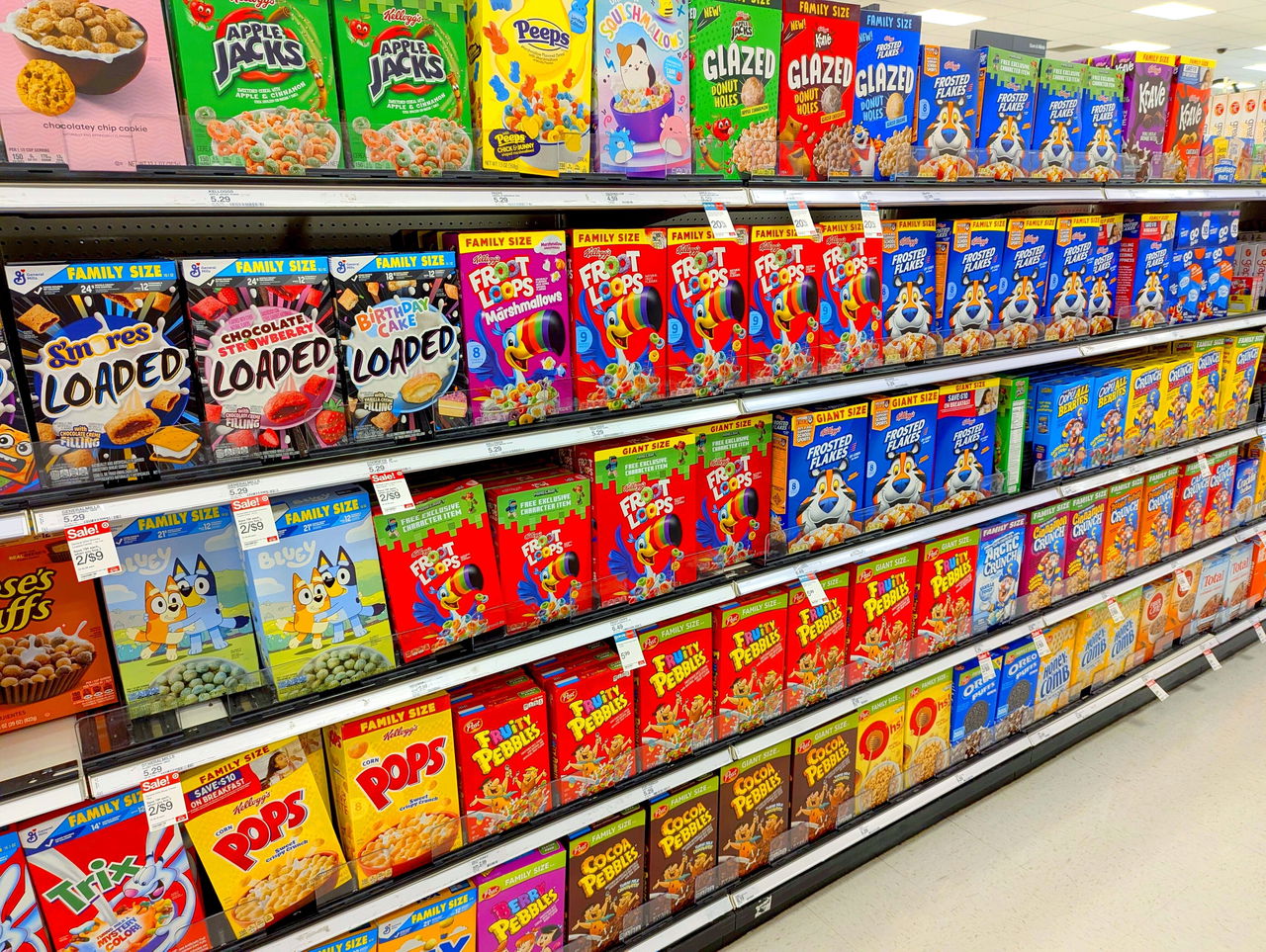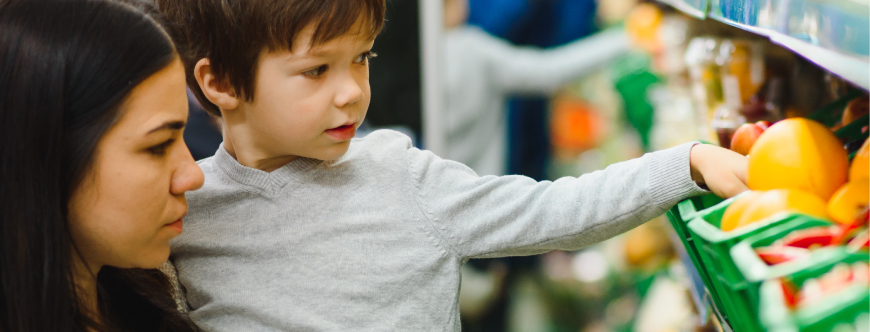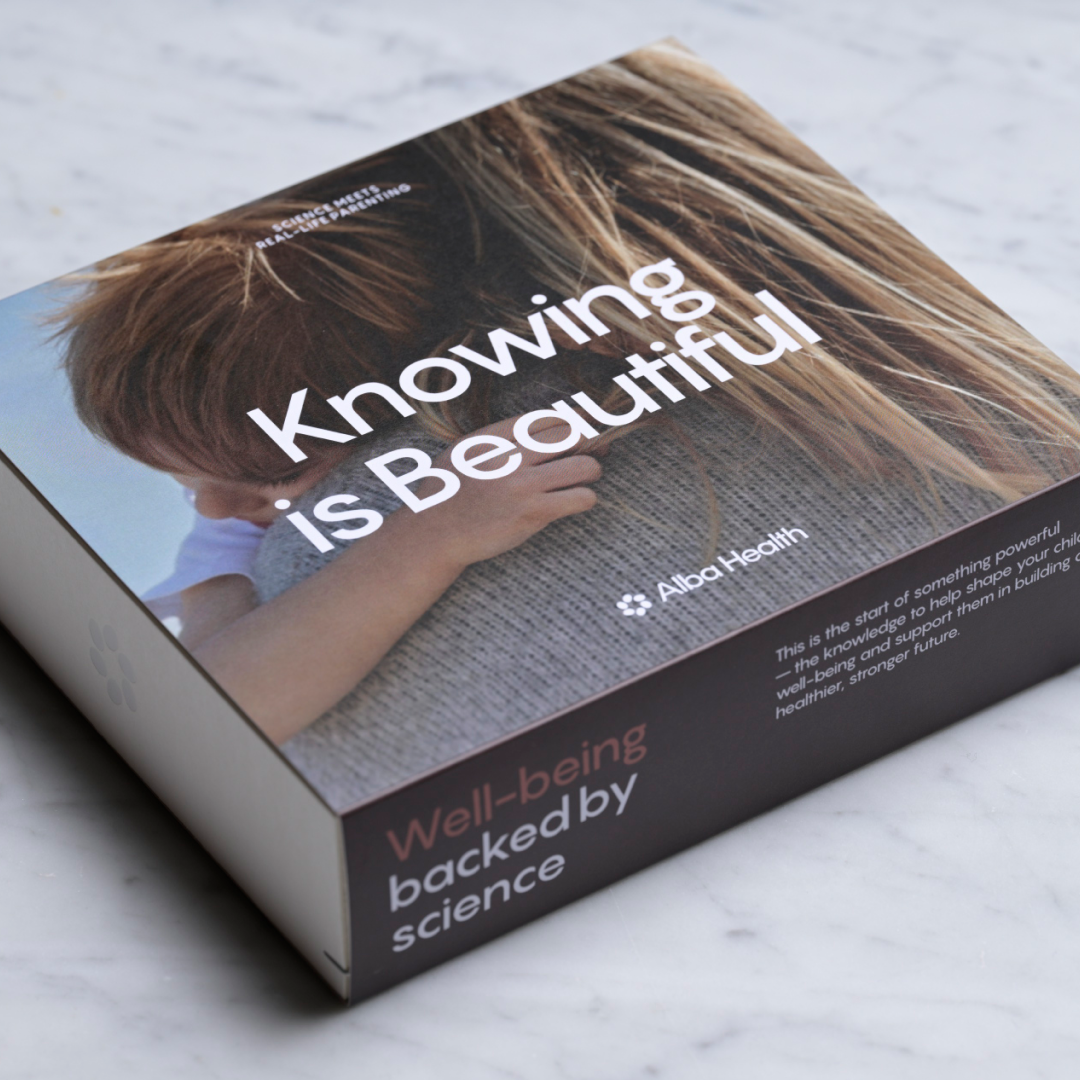Why are ultra-processed foods so confusing? New survey shows parents' struggle
Written by: Alba Health team
Last updated: 2025-10-24

Summary
Feeding your child well shouldn’t feel this complicated. A new survey of 1,000 UK parents, commissioned by Alba Health and parenting influencer Rachel Stirling, reveals just how confusing ultra-processed foods (UPFs) have become – and how much pressure parents feel to get it right. Many “healthy” snacks are actually ultra-processed, creating a gap between good intentions and reality. In this article, we unpack the findings and share simple, science-backed swaps to support your child’s gut health without added stress.
Trying to feed your child well can feel like a high-stakes guessing game. Between navigating picky eating, rising food costs, and conflicting advice, it’s easy to feel overwhelmed. If you feel this way, you are not alone.
A new survey of 1,000 British parents, commissioned by Alba Health in partnership with parenting influencer Rachel Stirling, reveals just how much pressure parents are under. The findings highlight widespread confusion, social pressure, and a critical gap between wanting to provide healthy food and being able to.
The most striking finding: two-thirds of parents (67%) could not correctly identify which common children's snacks were ultra-processed foods (UPFs). This isn't a failure of parenting: it's a sign of a confusing food environment filled with misleading marketing.
Background: The pressure on parents
The survey paints a clear picture of the daily hurdles parents face. More than half (55%) of parents worry "always" or "often" about their child's nutrition. This anxiety is compounded by practical and financial challenges:
- Picky eating was named the biggest obstacle to healthy meals by 57% of parents.
- The cost-of-living crisis has forced 55% to compromise on the quality of food they buy.
This pressure and confusion have created a culture of shame. The survey found that more than a third (37%) of parents admit to being dishonest about their child's diet when speaking to others. Some suggest their child's diet is healthier than it is, while others understate it, highlighting an intense social pressure surrounding family nutrition.
Rachel Stirling notes this is exactly what she hears from her community: "Parents desperately want to make the best choices... but they're constantly overwhelmed by clever marketing and conflicting information. The fact that so many parents feel the need to hide the truth... shows how much shame and pressure exist."


Survey findings: What parents really think
The core of the confusion lies in identifying what is and is not healthy. Parents particularly struggle to see past the "health halo" on products marketed as healthy alternatives.
This was most concerning when parents were asked to identify 'supposedly' healthy products as UPFs:
- Only 28% identified Innocent Smoothies as ultra-processed.
- Just 34% recognised Organix Crisps as ultra-processed.
This data shows that parents are actively trying to make good choices, but the packaging and marketing are making it incredibly difficult to tell the difference between a minimally processed food and an ultra-processed one.
The "health halo" effect
So, what are ultra-processed foods? They are products that undergo extensive industrial processing and contain additives, preservatives, and ingredients not typically used in home cooking (like emulsifiers, artificial sweeteners, and flavour-enhancers).
"What's particularly concerning is how many parents are unknowingly choosing products they believe are healthy options," adds Dr Colette Reynolds, Psychologist and Child Nutrition Advisor at Alba Health. "Many of the supposedly 'better' choices are still ultra-processed foods that lack the fibre and nutrients children's developing gut microbiomes need to thrive."
Why ultra-processed foods matter for gut health
This confusion has a direct impact on long-term health. The first 1,000 days of life (from conception to age two) are a critical window for the development of a child's gut microbiome: the community of bacteria and other microbes living in their digestive tract.
This early microbiome has long-term implications for immune, metabolic, and even mental health. A diet high in UPFs and low in fiber can disrupt the development of healthy gut bacteria. Research has linked these early microbiome imbalances to an increased risk of conditions like allergies, asthma, obesity, and type 1 diabetes later in life .
These findings are alarming, especially as British children are now among the most allergic in the world, with childhood allergy rates having tripled in 30 years . Good gut health established in early childhood is crucial for immune system development, making these early nutrition choices more critical than ever. Despite this, 48% of parents surveyed said they rarely consider gut health when preparing meals.
What you can do: Simple swaps
The good news is that simple changes can make a real difference, without adding complexity or cost. The goal is not perfection, but progress. Replacing one or two UPFs with less-processed alternatives can be a powerful first step.
Based on the survey findings, Alba Health's nutritionists identified common lunchbox items in the UK, and simple swaps:
- Instead of: Capri-Sun Zero Fruit Drinks (lacking nutrients and fibre) Try: Water infused with fresh fruit pieces.
- Instead of: Nature Valley Bars (high in sugar, artificial additives) Try: Nairns Oat Bars (69% oats and 65% less sugar).
- Instead of: Innocent Smoothies (high in sugar, missing whole fruit fibre) Try: Cold-pressed vegetable smoothies or, even better, a piece of whole fruit.
- Instead of: Müller Yoghurts (loaded with added sugars) Try: Natural kefir or plain yoghurt with fresh fruit added.
- Instead of: Ella's Kitchen Pouches (ultra-processed, no whole-fruit benefits) Try: Fresh or tinned fruit (in juice, not syrup).
- Instead of: BEAR Yoyos (concentrated fruit sugars without beneficial fibre) Try: Dried fruit pieces with no additives (like raisins or apricots).
- Instead of: Laughing Cow Triangles (highly processed with additives) Try: Soft cheese (like cream cheese or cottage cheese) without unnecessary ingredients.
- Instead of: Jacob's Mini Cheddars (ultra-processed, artificial flavours)Try: Oat-based crackers.
- Instead of: Billy Bear Ham (processed meat high in preservatives) Try: Minimally processed cooked chicken or hard-boiled egg.
"This highlights just how crucial it is that parents have access to clear, science-based information," says Eleonora Cavani, CEO and co-founder of Alba Health. "Simple swaps can make a real difference."
Summary
- A new survey from Alba Health and Rachel Stirling found UK parents face significant confusion and pressure around child nutrition.
- Two-thirds of parents (67%) struggle to identify ultra-processed foods (UPFs).
- Social pressure is high: 37% of parents have been dishonest about their child's diet.
- Picky eating (57%) and cost (55%) are major barriers to healthy eating.
- Many "healthy" snacks are UPFs, misleading parents through "health halo" marketing.
- Early childhood nutrition is critical for gut health, which influences long-term immune and metabolic health.
- Simple swaps, like choosing plain yoghurt over sweetened varieties, can support a child's developing microbiome.
Curious about your child’s gut health?
Discover your child’s gut health with Alba’s pioneering test – and get expert, personalized guidance from a certified Nutrition & Health Coach to help it thrive.
Get started

